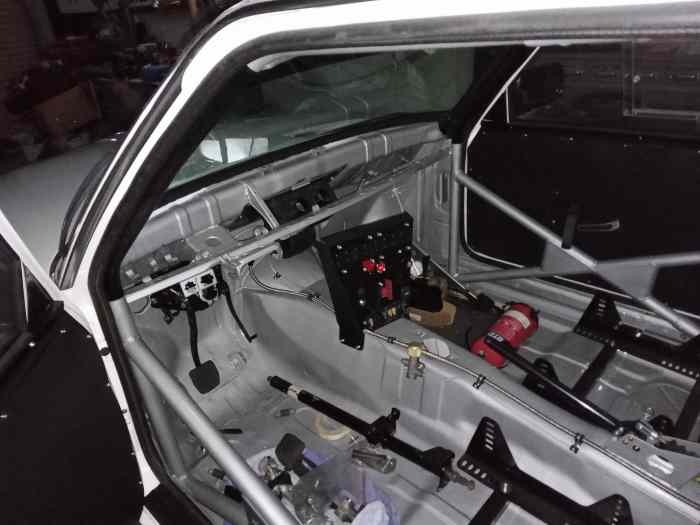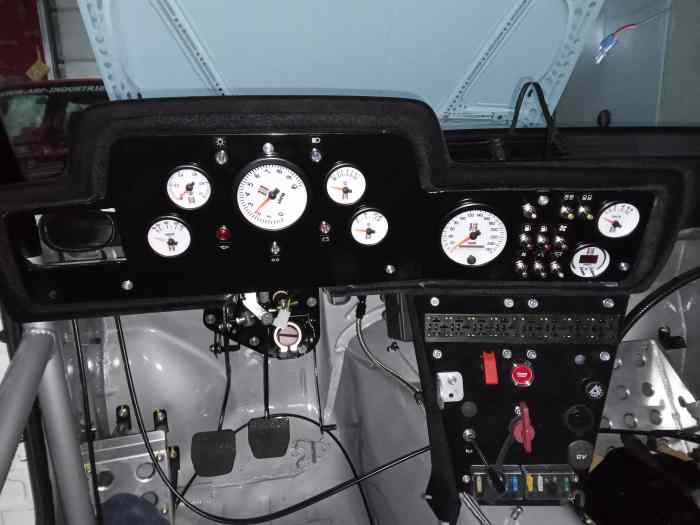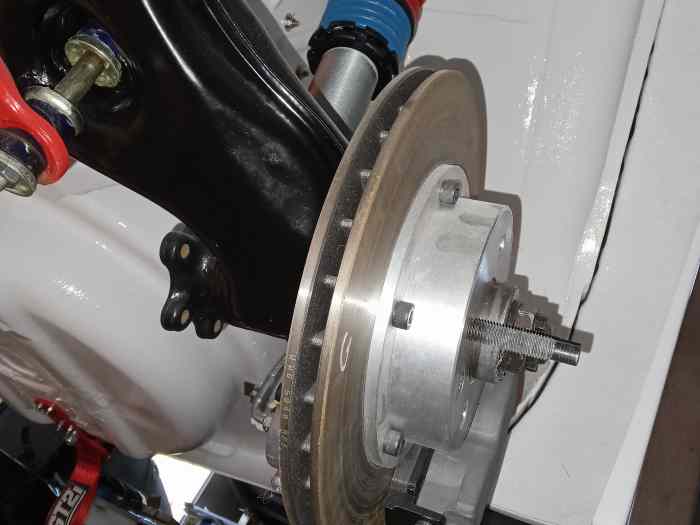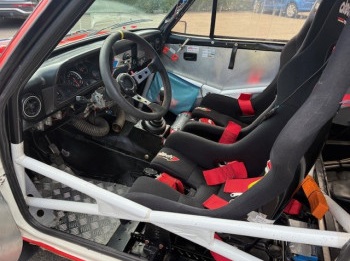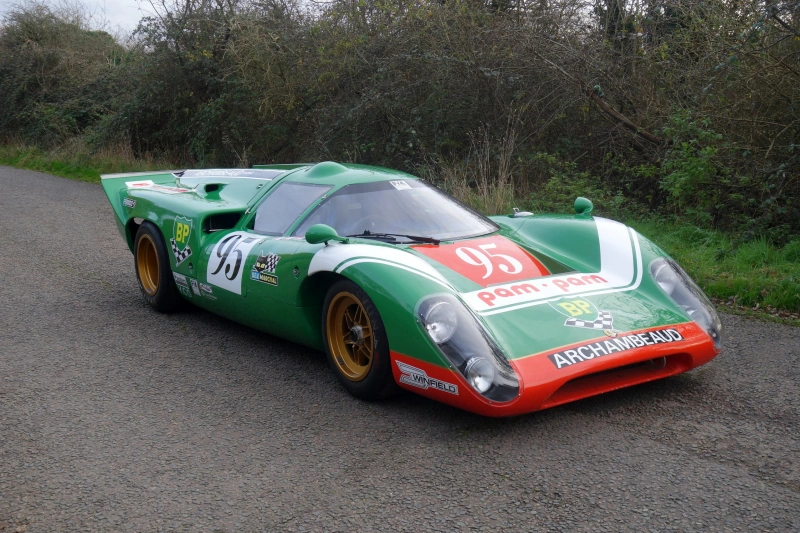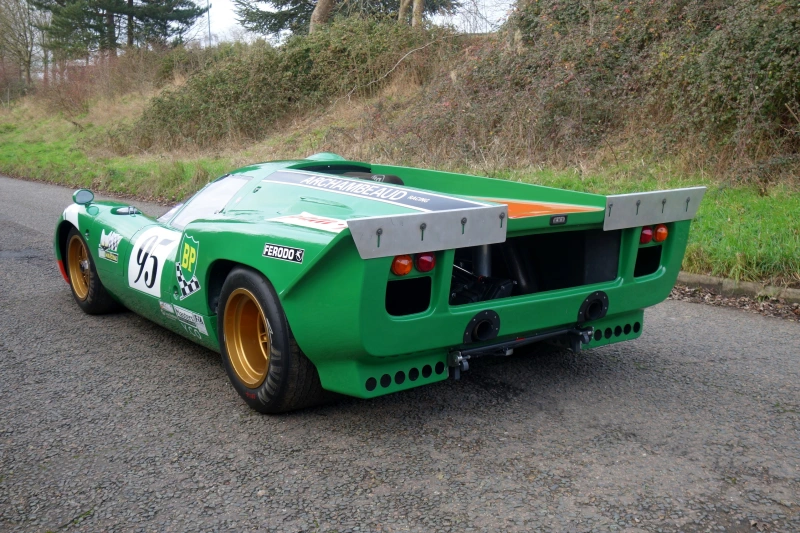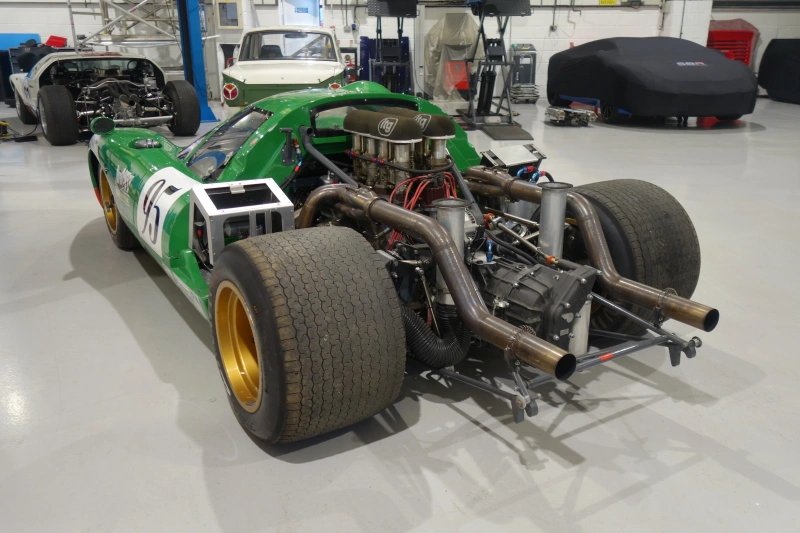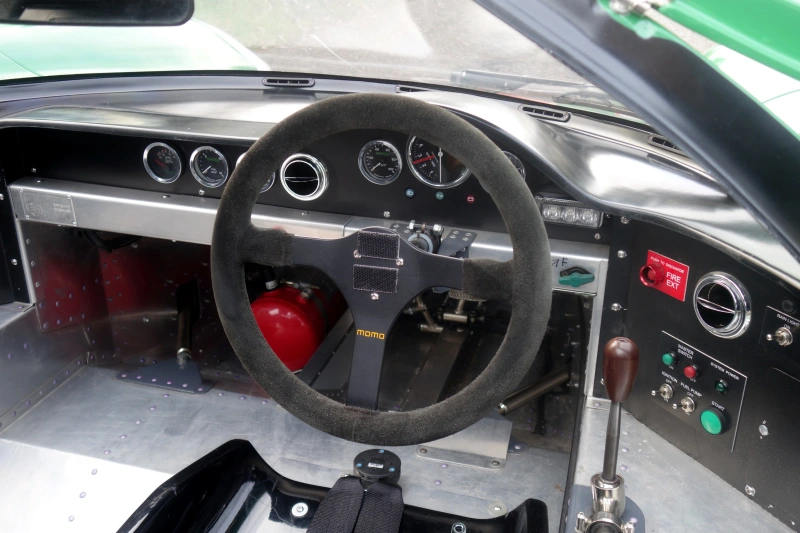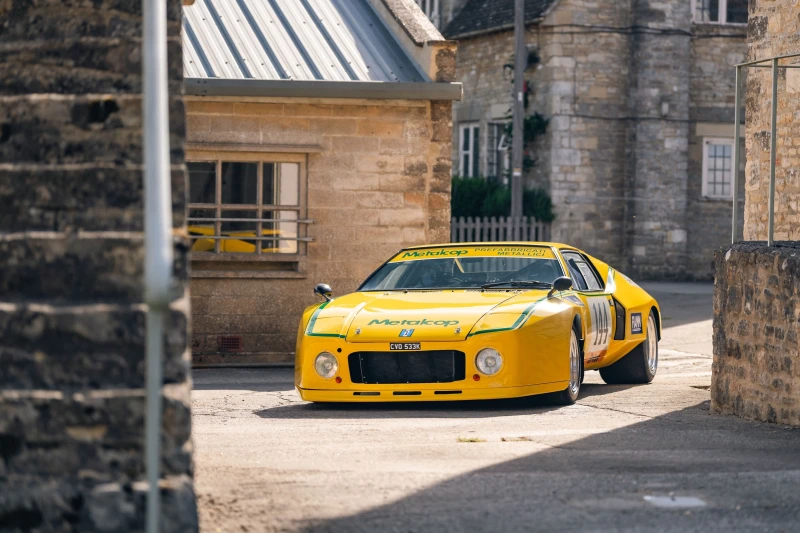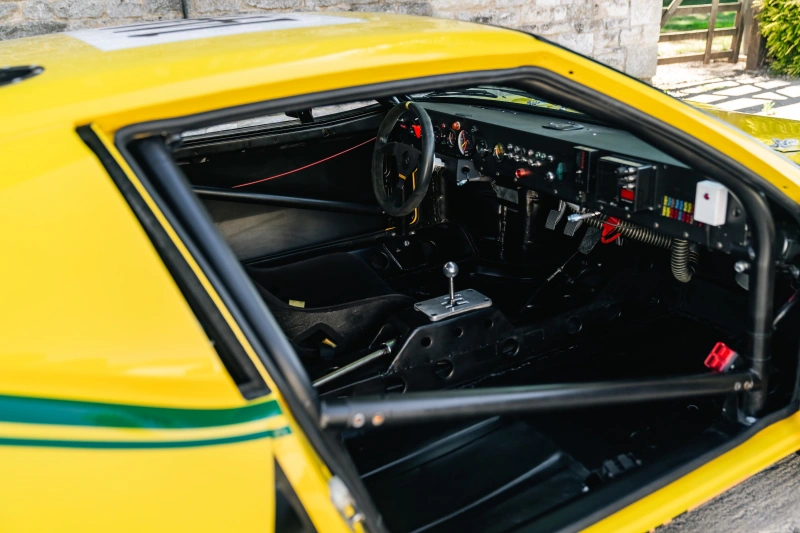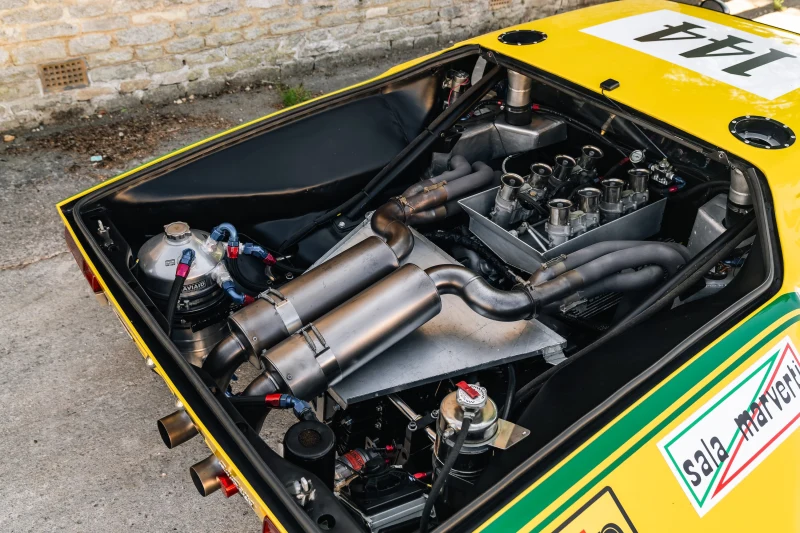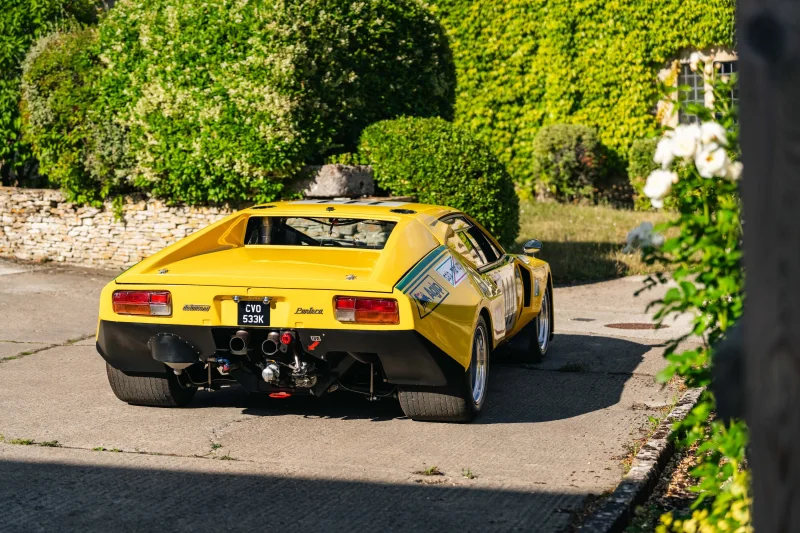
1962 Lotus 23 - Full Australian race history - Authentic rare car
Race cars • Historic Race Car • Lotus • For sale • United Kingdom • Leominster
Price on ask Published on 05/06/2025 at 08:37Ex-John Roxburgh with an extensive race history in Australia from 1963 - 1990; number 16 of only 131 made; part of a private UK collection for the last 25 years; a fine example of one of Colin Chapman's most effective giant-slaying race cars
AUCTION ESTIMATE: £50,000 - £70,000
Further photographs can be seen here - https://www.brightwells.com/timed-sale/5724/lot/799459
Launched at the 1962 London Racing Car Show, the flyweight Lotus 23 was specifically built for FIA Group 4 racing and was an evolution of the Type 21 and 22 with a stretched spaceframe to hold the wider fibreglass bodywork.
Although Lotus successes mainly came from single-seaters, the nominally two-seater Type 23 was the neatest and sleekest sports-racing car ever seen and soon built up a formidable 'giant-slaying' reputation, beating much larger and more powerful race cars by virtue of its fine handling and minimal weight. The last pure-bred small-capacity race car to be designed from the ground up by Colin Chapman and his team, it continues to be a highly competitive machine in historic racing in Europe and America today.
The Type 23 was first raced by the legendary Jim Clark at the 1962 Nurburgring 1,000km endurance race and although Clark eventually had to retire from the race, the Lotus was so far ahead of the pack on the first lap that the crowd assumed there had been a major crash somewhere behind him. In fact, he was just incredibly quick off the line, putting in a stupendous performance that kept him well ahead of the pack until he was overcome by fumes from a broken exhaust pipe.
There was also the saga of the Lotus 23 not meeting regulations for Le Mans due to various petty safety issues drummed up at the last minute by the French scrutineers which meant that the car started the race late – Chapman furiously refusing to race at Le Mans ever again, a vow that he kept.
The Lotus 23 offered here is chassis 16 out of only 131 made in total and they hardly ever come up for sale on the open market. According to the factory records, it is one of three exported to Australia in 1963 by Lotus agent, Derek Jolly, who immediately sold it to fellow Lotus agent and well-known racer, John Roxburgh.
Perhaps most famous for his Class wins on the gruelling Bathurst 1000 touring car race when driving for the factory-supported Datsun Racing Team in the late-1960s, Roxburgh also won the 1962 Six Hour Le Mans at Caversham in Western Australia driving a Lotus 15 with Derek Jolly. He later turned to the administration of the sport, serving as CAMS President from 1977 to 1982 and later being Australian delegate to the FIA.
Between 1963 and 1968, Roxburgh competed in the Lotus 23 at racing circuits across Australia including Longford, Sandown Park, Calder, Winton, Mallala, Bathurst and Philip Island.
Initially fitted with a Ford 105E pushrod engine, this was followed by a Cosworth Twin-Cam then by a selection of Coventry Climax engines, the last of these recorded as 2,700cc in which Roxburgh came 4th at Longford in 1968, when it was recorded as a Type 23C [a model which never officially existed, they tended to be called a C when they had been modified, in the case of this car probably because it had widened rear wheel arches at the time, or perhaps because of the size of the engine].
Records on file show that Roxburgh competed in 29 races in the Lotus 23, including a number of podium finishes (see photos).
He kept the car until 1972 when it was acquired by Alan Cruickshank (now minus the engine and gearbox) and from what we understand he did nothing with the car during his four-year ownership other than store it, although it was photographed by Lotus specialist Adrien Schagen (faded copy on file).
In 1976 it was acquired by Jim Shepherd who restored it to its original condition, his first recorded race with the car being in 1977 at Sandown, followed by various races at Winton, Adelaide, Calder, Collingrove, Amaroo, Mallala, Lakeside and the Geelong Sprint.
Shepherd installed the 175bhp Ford Twin-Cam 1,598cc engine and Hewland Mk4 five-speed gearbox which are still in the car today, with associated DK38 numbered Lotus head, Weber carbs and VW casings around the gears. Records on file show that Shepherd completed 25 races in the car, including some podium finishes (see photos).
As an interesting aside, Shepherd was not only a keen motor sport enthusiast but was also well-known to tens of thousands of Australian comic book fans as the publisher and managing director of Frew Publications of Sydney which had published the best-selling comic The Phantom since September 1948 – making it one of the longest-running comic books in the world.
In 1982 Shepherd sold the car to Peter Whelan, records showing that he took part in a further 47 races across Australia from 1983 to 1993. The car was also comprehensively rebuilt from the bare frame upwards during his ownership, the file documenting that it retained the same engine and gearbox installed by Shepherd. In 1999 Whelan also put together a detailed history of the car with the help of Lotus specialists Marc and Adrien Schagen, a copy of which is included in the file.
Our vendor acquired the car in c.1999/2000 and it has been kept on static display as part of his impressive UK-based private collection ever since. Due to lack of recent use, it will doubtless benefit from some precautionary recommissioning before returning to the track once more.
As you can see in the photos, this exceedingly rare Lotus looks to be in fine condition cosmetically and will be eligible to race at Goodwood and a host of other historic race circuit and hill climb events. With impeccable provenance and fresh to the market from 25-year private ownership, it could be a long time before you ever see another for sale again so this really is a chance not to be missed.
Consigned by Toby Service: toby.service@brightwells.com
Credit to Peter d’Abbs for supplying the period photographs of this car racing in Australia
Also to Marc Schagen for his kind clarifications and help with this description












